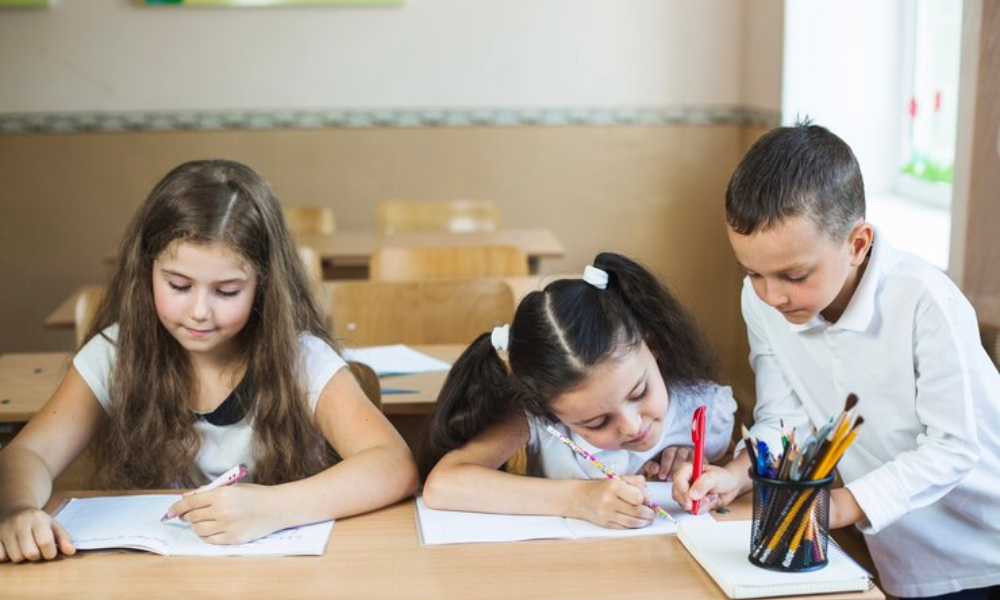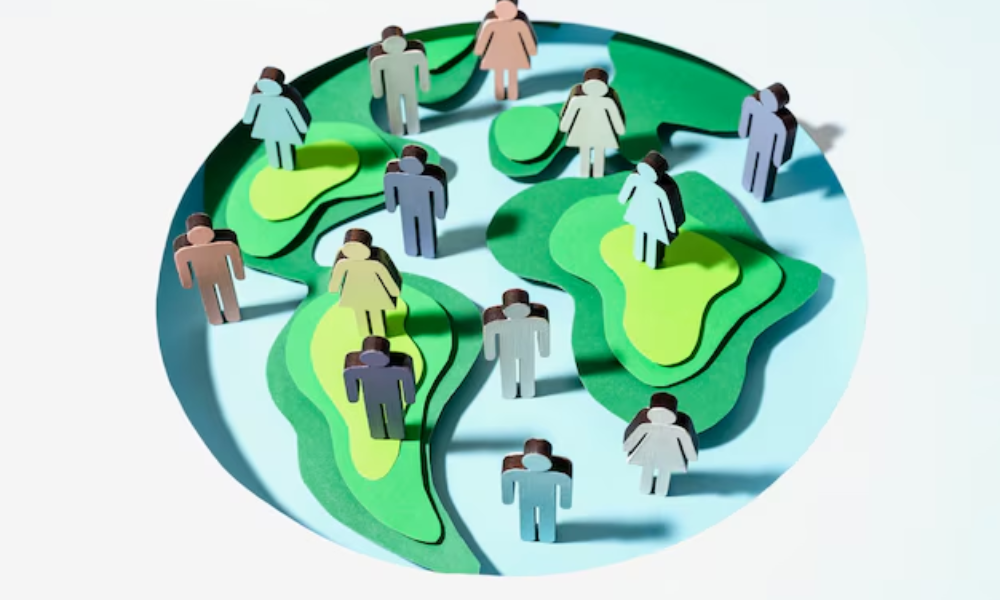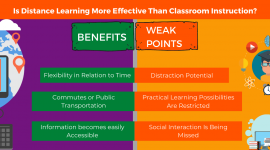Picture this: two students, same age, same city, but vastly different educational experiences. What causes these differences? Let’s dive into the world of sociology and education to find out.
Think about how people interact with each other and how societies function. That’s sociology. It studies human relationships and institutions, diving into how social structures and cultural contexts shape our behaviors. Now, consider education—it’s more than just going to school. Education in dehradun is a way of learning and gaining knowledge, skills, values, and habits. When you combine these two fields, you get the Sociology of Education, which examines how public institutions and personal experiences impact learning and its outcomes. It also looks at how society influences education and vice versa.
Importance of Sociology & Education
Understanding Social Influences
You might wonder how factors like culture, social class, gender, and ethnicity affect education. The Sociology of Education helps us see these connections clearly. For example, have you noticed that students from different backgrounds often have different educational outcomes? This field shows us how education systems can either maintain social inequalities or help people move up in society.
Informing Educational Policies and Practices
Sociological studies are vital for creating effective teaching strategies and educational reforms. When policymakers and educators understand the diverse needs of students, they can design curricula that truly cater to everyone. Imagine a classroom where every student’s background is considered in the teaching method. This inclusivity can make a significant difference.
Promoting Social Change and Equity
By identifying and addressing social inequalities in education, sociology drives social change. It helps create fair educational practices that serve everyone, especially marginalized and underrepresented groups. You can see the impact of this in programs designed to support students from low-income families or those with learning disabilities.
Theoretical Perspectives in the Sociology of Education

Functionalism
Education plays several key roles in society. It helps with socialization, integrates individuals into the community, and maintains social stability. Think about how schools prepare you for your future roles in society and the economy. This perspective shows how education supports the functioning of society as a whole.
Conflict Theory
On the flip side, education can also perpetuate social inequalities. Through hidden curriculums, standardized testing, and tracking, it often reflects and reinforces existing power structures. Have you ever felt that certain groups always seem to have an advantage? Conflict theory explains how and why this happens.
Symbolic Interactionism
This perspective focuses on the daily interactions within educational settings. Consider the relationships between teachers and students or among peers. These interactions shape your self-concept, academic performance, and social development. It’s fascinating to see how everyday experiences in school can have long-term effects on your life.
Nature of Sociology

Sociology, as a field of study, focuses on understanding human behavior, social interactions, and the structures of society. It delves into how individuals and groups influence one another and are shaped by broader societal forces. The nature of sociology can be summarized through several key characteristics:
Sociology is a Social Science
Sociology systematically studies human behavior in a societal context. It employs scientific methods, such as observation, surveys, and analysis, to uncover patterns in social interactions. Unlike natural sciences, sociology emphasizes subjective experiences and the complexities of human relationships.
Focus on Social Groups and Institutions
Sociology examines the role of social groups like families, communities, and peer networks in shaping individual identities. It also investigates institutions such as education, religion, and government and their impact on societal norms and values.
Dynamic and Ever-Changing
The nature of sociology is dynamic as it evolves with societal changes. It adapts its theories and methodologies to study emerging issues, such as the effects of technology, globalization, and social movements.
Interdisciplinary Connections
Sociology intersects with other disciplines like psychology, economics, and political science to provide a comprehensive understanding of societal phenomena. For example, sociologists may collaborate with psychologists to explore the relationship between individual behavior and societal expectations.
Value Neutrality
Sociologists strive to remain unbiased and objective in their research. This principle ensures that studies accurately reflect societal trends without personal or cultural prejudices.
Study of Both Macro and Micro Levels
Sociology investigates large-scale societal structures (macro-level) and small-scale interactions (micro-level). Macro-level studies might include analyzing economic systems, while micro-level studies focus on personal relationships and group dynamics.
Awareness of Social Problems
The nature of sociology is deeply rooted in identifying and addressing social issues. By studying problems like inequality, discrimination, and poverty, sociologists contribute to developing solutions for a better society.
Key Concepts in the Sociology of Education

Socialization
Socialization is how you learn and internalize the values, beliefs, and norms of your society through education. Schools play a huge role in this process by teaching you cultural values and social norms. Remember those lessons about teamwork and respecting others? That’s socialization at work.
Cultural Knowledge
Cultural knowledge refers to the non-financial social assets that influence your success in the educational system. This includes language proficiency, cultural knowledge, and social skills. Think about how knowing multiple languages or understanding cultural references can give you an edge in school.
Hidden Curriculum
The hidden curriculum includes the informal and often unintentional lessons, values, and perspectives that you learn in school. These could be attitudes towards authority, conformity, and competition. Have you ever noticed how schools sometimes teach you more than just the official subjects? That’s the hidden curriculum in action.
The Role of Education in Social Stratification

Education and Social Class
Education can either reduce or increase social inequalities, depending on how accessible and fair it is. Students from higher social classes often have more access to quality education and resources. Have you ever seen how some schools have more facilities and better programs? This is a clear example of how social class can affect education.
Gender and Education
Gender biases and stereotypes can influence educational experiences and outcomes. Efforts to promote gender equality in education include addressing curriculum content, teacher biases, and school policies. Think about initiatives that encourage girls to pursue STEM subjects. These are steps towards gender equality in education.
Race and Ethnicity in Education
Racial and ethnic disparities in education can result from systemic biases and discrimination. Culturally responsive teaching and inclusive curricula are essential for addressing these disparities. Have you ever had a teacher who made an effort to include diverse perspectives in their lessons? This approach helps combat racial and ethnic inequalities.
Applications of Sociology in Education

Curriculum Development
Sociological insights are crucial for developing inclusive and relevant curricula. When the curriculum addresses social issues and promotes critical thinking, it benefits everyone. Imagine a history lesson that includes diverse viewpoints and encourages you to think critically about past events. This kind of education is more engaging and meaningful.
Teacher Training
Understanding sociological principles helps teachers create inclusive classrooms that address the needs of all students. It equips them with the skills to manage diverse classrooms and promote equity. Have you ever had a teacher who seemed to understand and respect everyone’s background? That’s the result of good teacher training based on sociological insights.
Educational Policy and Reform
Sociological research influences educational policies and reforms aimed at promoting social justice and equity. It provides evidence-based recommendations for improving educational systems and practices. Think about policies that support low-income students or those with special needs. These are informed by sociological research and aim to create a fairer education system.
Summary and Insights
The relationship between sociology and education is key to understanding and improving educational systems. By looking at how social factors influence education, we can develop strategies to make education more fair and effective. This field offers valuable insights that help shape educational policies, teaching practices, and curriculum development, ultimately benefiting society as a whole. By understanding these connections, you can see how education and sociology work together to create a better future for everyone.
FREQUENTLY ASKED QUESTION
Q1. What is the sociology of education?
The sociology of education examines how public institutions, societal structures, and personal experiences influence education and its outcomes. It also explores how education impacts society and vice versa, emphasizing the connections between social factors and learning processes.
Q2. Why is the sociology of education important?
The sociology of education is essential because it helps identify and address social inequalities in educational systems. It informs policymakers, educators, and institutions to create inclusive and effective learning environments that cater to diverse social groups.
Q3. How does the nature of sociology relate to education?
The nature of sociology focuses on understanding human interactions and societal structures, which directly influence educational systems. By analyzing social groups, cultural contexts, and societal norms, sociology provides insights into how these factors shape educational experiences.
Q4. How does sociology help improve educational policies?
Sociological studies provide evidence-based insights into the challenges faced by students from different social backgrounds. This helps policymakers design reforms and strategies that promote equity, such as inclusive curricula, teacher training, and support programs for marginalized groups.
Q5. What role does education play in social stratification?
Education can either reduce or reinforce social inequalities. Access to quality education often depends on factors like social class, gender, and ethnicity, influencing an individual’s opportunities for upward mobility.










